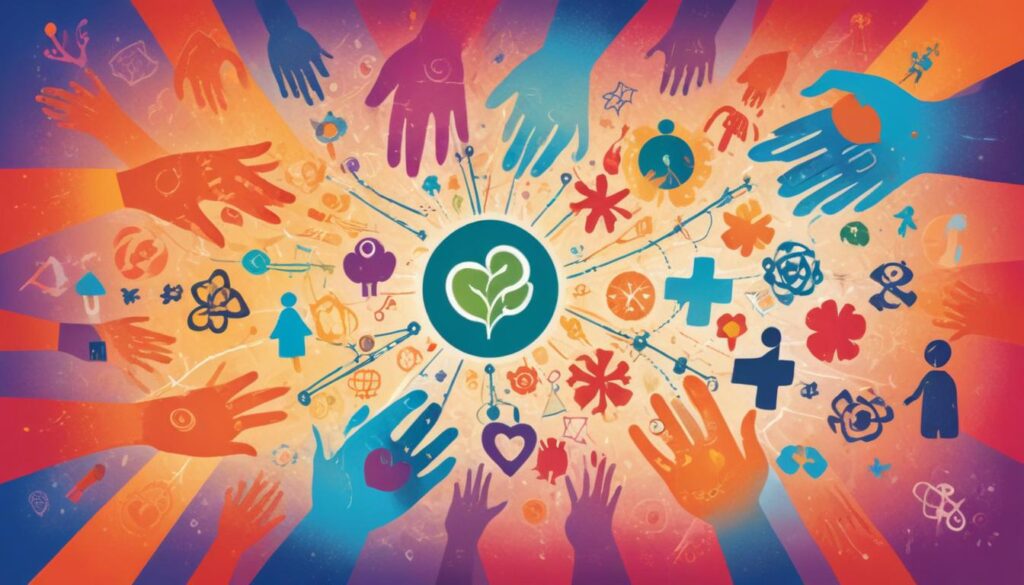Sustainability encompasses practices that protect the environment, promote social equity, and drive economic growth by minimizing waste, using renewable resources, and fostering community engagement.
In the realm of **sustainability**, recent news reveals pivotal moments, such as Disney’s significant DEI initiative support and alarming climate forecasts. Curious about how these trends shape our future?
Disney’s shareholders support DEI initiatives
Disney’s shareholders recently demonstrated robust support for the company’s initiatives focused on Diversity, Equity, and Inclusion (DEI). This overwhelming backing reflects a significant shift in corporate culture, where stakeholders recognize the importance of DEI in fostering a positive workplace environment.
The commitment to DEI is not just a corporate checkbox; it is fundamental for innovation and growth. By embracing diverse perspectives, companies like Disney can enhance creativity and better serve their global audience. Furthermore, it attracts a wider talent pool, ensuring a workforce that mirrors the rich diversity of its consumers.
Investors increasingly demand accountability from companies regarding their social responsibility practices. Disney’s decision to prioritize DEI initiatives aligns with growing expectations that these practices lead to sustainable financial performance. Research suggests that organizations with strong DEI frameworks outperform their competitors, proving that inclusivity is not merely ethical but also a strategic advantage.
Shareholders are advocating for transparency and regular reporting on the progress of these initiatives. This calls for Disney to set measurable goals and disclose outcomes to maintain investor confidence and public trust. As the discourse around DEI intensifies, Disney’s approach may serve as a model for other corporations aiming to integrate these values profoundly into their operations.
BCG’s dire climate economic forecast
BCG’s latest climate economic forecast presents a stark warning regarding the future of our planet. The report emphasizes that without immediate action, the global economy faces severe consequences due to climate change. Rising temperatures, extreme weather events, and the depletion of natural resources are just a few of the looming threats highlighted in their findings.
The forecast predicts significant economic deterioration in regions critically dependent on climate-sensitive sectors. For instance, agriculture, fisheries, and tourism could face devastating losses, potentially impacting millions of livelihoods worldwide. Addressing these issues is not only a matter of environmental responsibility but also critical for long-term economic stability.
BCG stresses that transitioning to a sustainable economy is essential. This requires substantial investments in renewable energy, sustainable agriculture, and technology innovation. Companies that prioritize sustainability are more likely to thrive, gaining a competitive edge as consumers increasingly choose eco-friendly options.
Moreover, the report calls for urgent policy action from governments, urging leaders to implement frameworks that support sustainability goals. Climate resilience must be a priority, establishing a foundation for future generations. Failing to act now means risking irreversible damage, making it imperative for all sectors to collaborate towards a sustainable future.
PepsiCo & Syngenta’s sustainable practices
PepsiCo and Syngenta are leading the way in sustainable practices within their respective industries. By collaborating, these companies are setting a new standard for responsibility in agriculture and food production. Their initiatives focus on reducing the environmental impact while enhancing productivity through innovative solutions.
PepsiCo has implemented programs aimed at sustainable sourcing and water conservation. By improving agricultural efficiencies, they help farmers adopt practices such as crop rotation and precision farming. These measures not only boost yields but also contribute to the sustainability of local ecosystems.
On the other hand, Syngenta is investing heavily in research and development to create resilient crops that can withstand extreme weather conditions. Their emphasis on biotechnology and sustainable crop protection is crucial in a time when climate change poses significant risks to food security.
Together, PepsiCo and Syngenta demonstrate that collaboration can lead to innovative strategies that benefit both the environment and business. The growth in sustainable practices helps them meet consumer demand for responsible products while ensuring long-term growth. As industry leaders, they set an example for others to follow, proving that profitability and sustainability can indeed go hand in hand.
BASF’s green hydrogen project success
BASF has made significant strides with their green hydrogen project, showcasing an innovative approach to sustainable energy. This initiative aims to produce hydrogen through renewable energy sources, minimizing carbon emissions compared to traditional methods. By utilizing wind and solar power, BASF’s project reflects a crucial step toward a low-carbon economy.
The production of green hydrogen not only supports BASF’s sustainability goals but also aligns with global efforts to decarbonize industries. Hydrogen serves as a clean energy carrier that can replace fossil fuels in various applications, making it vital for achieving climate targets. The company’s commitment positions them as a leader in the transition to renewable energy.
Moreover, BASF’s plans include partnerships with various stakeholders, such as energy suppliers and technology developers. Collaborative efforts will enhance the project’s feasibility and scalability, allowing for greater impact across different sectors. By combining expertise, these partnerships aim to drive innovation in the hydrogen economy.
As BASF continues to invest in green technologies, the successful implementation of its hydrogen project sets an example for other companies. Their progress not only demonstrates the viability of sustainable energy solutions but also reaffirms the role of corporate responsibility in fighting climate change.
NASA’s Artemis mission diversity changes
The Artemis mission by NASA is revolutionizing space exploration with its commitment to diversity and inclusion in its workforce. Historically, the aerospace industry has faced challenges in representing different backgrounds. However, Artemis aims to change that narrative by bringing a more diverse group of individuals into the fold.
One of the key pillars of the Artemis mission is enhancing participation from women and underrepresented minorities in STEM fields. NASA is actively seeking opportunities to encourage young professionals from various ethnicities and genders to engage in space sciences and technology. This focus not only broadens the talent pool but also fosters innovation.
In addition to workforce diversity, the Artemis program emphasizes inclusive decision-making. By considering a wide array of perspectives, NASA aims to create solutions that are more effective and equitable for all. This approach acknowledges that a diverse team can enhance problem-solving abilities, leading to groundbreaking advancements in space exploration.
The mission is a reflection of a growing realization that diversity is not merely a benefit but a necessity. As NASA prepares for lunar missions and beyond, its commitment to fostering a diverse environment is crucial for future success. It places emphasis on collaboration and collective success, ensuring that everyone has a role in humanity’s journey into space.
The broader implications for sustainability
The broader implications for sustainability extend beyond environmental conservation; they encompass social and economic dimensions as well. As companies and organizations embrace sustainable practices, they contribute to a holistic approach that promotes the well-being of the planet and its inhabitants.
Implementing sustainability measures encourages innovation and efficiency in various sectors. Businesses adopting sustainable models often reduce waste and optimize resource usage, leading to cost savings. These savings can then be reinvested in new technologies and processes, driving further advancements.
From a social perspective, sustainability fosters community engagement and corporate responsibility. Companies committed to sustainability often support local initiatives and empower marginalized groups. By creating inclusive opportunities, they not only uplift communities but also enhance their brand reputation in the eyes of consumers who prioritize ethical practices.
The economic implications are profound, as sustainable practices can lead to job creation in green industries. Investing in renewable energy, sustainable agriculture, and eco-friendly technologies generates new employment opportunities. This shift aids in transitioning economies towards more resilient and sustainable models, reducing dependency on fossil fuels and mitigating climate change impacts.
Ultimately, the pursuit of sustainability is a multifaceted journey that necessitates collaboration among businesses, governments, and individuals. A collective commitment is essential to ensure that current and future generations inherit a healthier planet and equitable society.
The Path Forward for Sustainability
As we move forward, the importance of sustainability cannot be overstated. It is essential for protecting our planet and ensuring a better future for generations to come.
By embracing sustainable practices, businesses can save costs, foster innovation, and build a positive relationship with their communities. This collective effort not only aids the environment but also creates economic opportunities.
Working together, individuals, companies, and governments can make a significant impact. When we prioritize sustainability, we contribute to a healthier planet and a more equitable society.
Ultimately, every small step we take towards sustainability counts. Let us commit to making choices that benefit our world and future.
Frequently Asked Questions
What is the importance of sustainability?
Sustainability is crucial for protecting the environment, ensuring resources for future generations, and fostering social equity.
How can businesses benefit from sustainable practices?
Businesses can reduce costs, enhance their brand image, attract customers, and create new job opportunities through sustainable practices.
What are some examples of sustainable practices?
Examples include minimizing waste, using renewable energy sources, supporting local communities, and investing in sustainable technologies.
How does sustainability impact the economy?
Sustainability can drive economic growth by creating jobs in green industries and promoting innovations that reduce environmental impact.
Why is community engagement important for sustainability?
Community engagement fosters trust and collaboration, helping businesses understand and address local needs, which enhances the effectiveness of sustainability efforts.
Can individuals contribute to sustainability efforts?
Absolutely! Individuals can make a difference by making eco-friendly choices, reducing waste, and supporting sustainable brands and practices.


